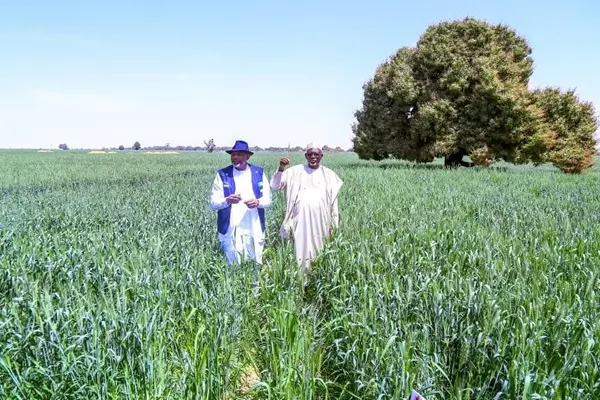Despite employing more than 36% of Nigeria’s population, agriculture contributes just around 24% to the national GDP, thanks to obsolete practices, limited mechanisation and weak infrastructure.
Nigeria loses trillions annually to post-harvest waste. Around 40% of perishable crops are rotten before they reach the market.
Jigawa, a northern state with vast arable land, is among the largest producers of rice, wheat, sesame and groundnut in the country. Yet, decades of underinvestment, poor irrigation systems, and recurring floods have kept productivity below its true potential.
Farmers often rely on subsistence practices, struggling with erratic rainfall, low access to credit, and weak value chains.
This outcome has kept rural communities in poverty. Youth, comprising the majority of the population, often migrate to cities or across borders in search of opportunities, leaving behind untapped labour that could transform the state into a true agricultural powerhouse.
The Jigawa government has declared that the state is on a firm path of lasting transformative progress under its “Greater Jigawa” initiative. It highlighted major strides in agriculture, infrastructure, and youth empowerment as central achievements since assuming office.
The Jigawa Agricultural Transformation Agency was recently created by law to modernise farming practices, alongside a newly established Ministry for Livestock Development to accelerate growth in the livestock sector.
In infrastructure, 26 road projects covering over 300 kilometres have been completed, while 45 new ones spanning 800 kilometres are underway. On youth empowerment, more than 60 programmes have already reached 300,000 beneficiaries, with women and young people as primary targets.
Why Jigawa’s initiative matters
Agriculture is the mainstay of Jigawa’s economy. Beyond feeding families and generating revenue, a robust agricultural industry reduces dependency on imports and builds food resilience.
By reforming agriculture, the state is not just feeding itself but potentially contributing to Nigeria’s broader food sufficiency goals.
Modern farming—through mechanisation, irrigation, improved seeds, and better storage—reduces waste and boosts yields. This creates value chains that benefit smallholder farmers, agro-processors, and exporters alike.
The creation of the Jigawa Agricultural Transformation Agency signals a shift toward coordinated, institutional support rather than scattered projects.
Also, livestock accounts for 10% of Jigawa’s GDP. Herds of cattle, sheep, and goats are not just cultural assets but vital economic resources.
By creating a dedicated Ministry for Livestock Development, the Jigawa government is signalling a recognition that pastoralism and animal husbandry deserve equal policy attention as crops.
This could reduce herder-farmer conflicts, expand dairy and meat production, and formalise markets that are currently underutilised. It could also link the state to Nigeria’s growing demand for livestock products, which is projected to double by 2050.
Infrastructure and the Rural Economy
Better roads mean crops get to markets faster, fresher, and at a lower cost. Completing over 300 kilometres of inherited road projects and launching 800 kilometres more is a direct boost to trade and mobility.
For farmers, this reduces post-harvest losses, opens up new markets, and cuts transportation costs. For rural youth, it connects communities to education, healthcare, and jobs.
Over 60 programmes reaching 300,000 young people and women may seem like statistics, but they hint at more: inclusion. With over 60% of Jigawa’s population under 35, youth empowerment is essential.
Skills training, access to credit, and entrepreneurship schemes ensure that young people drive development. Still, challenges remain.
Nearly 800,000 children are out of school in Jigawa, and industrialisation is lagging. Without consistent follow-through, empowerment risks becoming temporary relief instead of long-term transformation.
Jigawa stands at a crossroads. Its fertile land, youthful population, and growing infrastructure form a powerful base for transformation. But success depends on sustained execution, farmer participation, and youth-driven innovation.
The creation of agencies, ministries, and programmes is a first step. The real test will be measured in higher yields, thriving livestock markets, more empowered youth and communities lifted out of poverty
Summary not available at this time.






